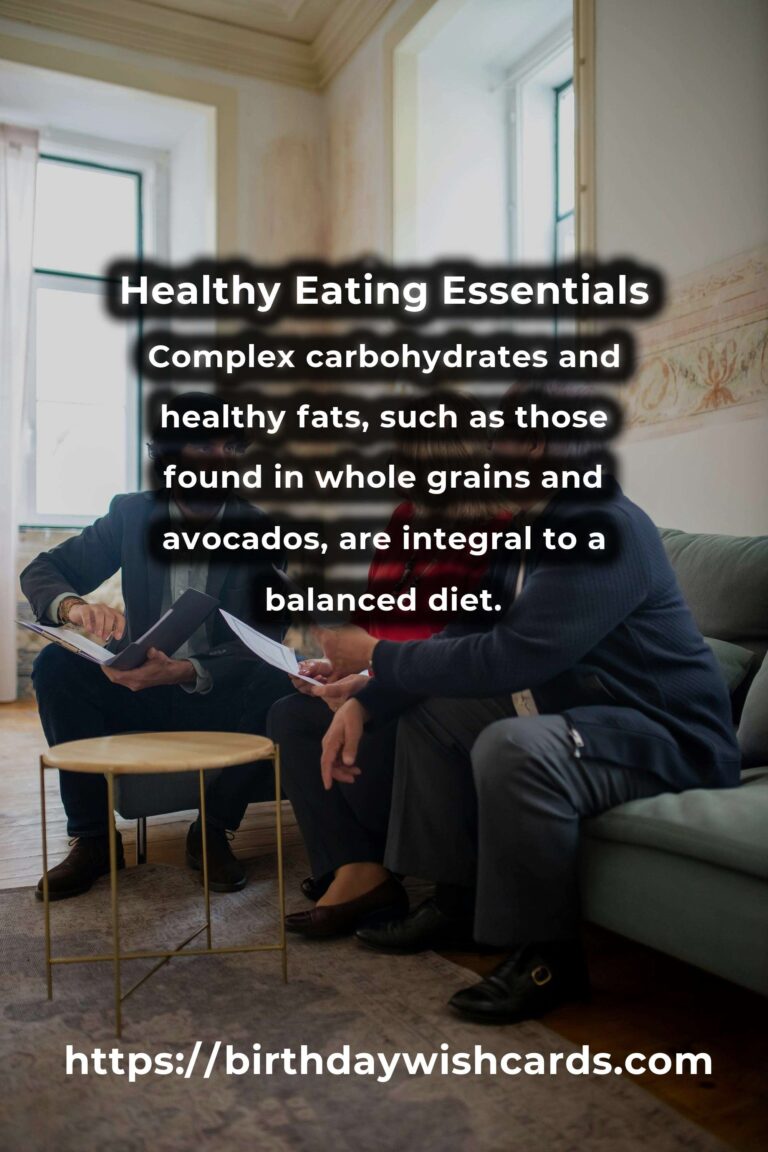
In today’s fast-paced world, maintaining a healthy diet can be challenging. With an abundance of processed foods and a lack of nutritional education, many people find themselves confused about what constitutes healthy eating. This article will delve into essential principles of healthy eating, providing you with the knowledge you need to make informed dietary choices.
Understanding Macronutrients
Macronutrients are the nutrients that provide calories or energy. They are essential for basic bodily functions and include carbohydrates, proteins, and fats. Each plays a unique role in maintaining your health and well-being.
Carbohydrates
Carbohydrates are the body’s primary source of energy. They are found in foods like fruits, vegetables, breads, and pastas. While they often get a bad rap, not all carbohydrates are created equal. It’s important to focus on complex carbohydrates, such as whole grains and legumes, which provide sustained energy and contain vital nutrients.
Proteins
Proteins are crucial for building and repairing tissues, as well as making enzymes and hormones. They are found in both animal and plant sources, including meat, fish, eggs, beans, and nuts. Incorporating a variety of protein sources in your diet can help ensure you get all the essential amino acids your body needs.
Fats
Fats are necessary for absorbing fat-soluble vitamins, protecting organs, and providing energy. Healthy fats, such as those found in avocados, nuts, and olive oil, can support heart health and reduce inflammation. It is important to limit saturated and trans fats, often found in processed foods, to maintain optimal health.
The Role of Micronutrients
Micronutrients include vitamins and minerals that are vital for disease prevention, growth, and good health. While they are needed in smaller amounts than macronutrients, their impact on health is significant. Eating a varied diet rich in fruits, vegetables, and whole foods can help ensure you get the necessary micronutrients.
Vitamins
Vitamins support various bodily functions, including immune function, energy production, and bone health. They are classified as either water-soluble or fat-soluble. Water-soluble vitamins, such as vitamin C and the B-vitamins, need to be consumed regularly as they are not stored in the body. Fat-soluble vitamins, including vitamins A, D, E, and K, can be stored in the body and are found in fatty foods.
Minerals
Minerals like calcium, potassium, and iron are essential for health. Calcium supports bone health, potassium regulates blood pressure, and iron is crucial for blood transport. Ensuring an adequate intake of these minerals can help prevent deficiencies and maintain overall health.
Balancing Your Diet
A balanced diet involves consuming the right proportions of macronutrients and micronutrients. This can be achieved by incorporating a variety of foods from all food groups, ensuring that meals are colorful and diverse. The key is moderation and variety, allowing for occasional indulgences while keeping the focus on nutrient-dense foods.
Hydration: An Essential Component
Hydration is an often overlooked but essential element of healthy eating. Water is crucial for digestion, nutrient transport, and temperature regulation. Aim to drink at least eight glasses of water a day, and more if you are physically active or live in a hot climate.
Mindful Eating
Healthy eating is not just about what you eat, but also how you eat. Mindful eating involves paying attention to hunger cues, eating slowly, and savoring each bite. This practice can help prevent overeating and promote a healthier relationship with food.
Conclusion
Understanding and implementing healthy eating principles can have a profound impact on your overall health and well-being. By focusing on balanced nutrition, staying hydrated, and practicing mindful eating, you can create a sustainable dietary pattern that supports your health goals.
Macronutrients, including carbohydrates, proteins, and fats, are essential for energy and bodily functions. Complex carbohydrates and healthy fats, such as those found in whole grains and avocados, are integral to a balanced diet. Micronutrients, including vitamins and minerals, are vital for disease prevention and good health. A balanced diet involves a variety of foods from all food groups, focusing on nutrient density and moderation. Hydration is crucial for digestion and nutrient transport, requiring at least eight glasses of water daily. Mindful eating promotes a healthier relationship with food and prevents overeating.
#HealthyEating #Nutrition #BalancedDiet #Wellness #HealthyLifestyle













